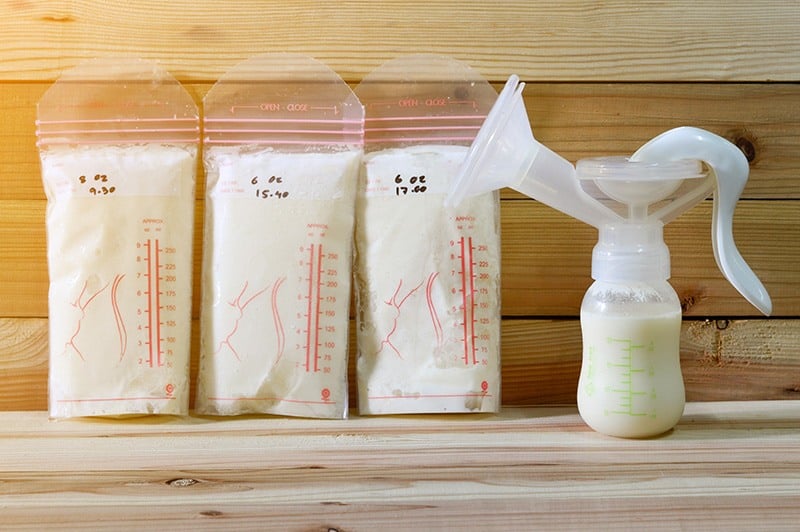Pregnancy comes with a lot of surprises. That’s why it’s no wonder why mamas-to-be have a lot of breastfeeding questions. Along with these arise many myths that need busting. Here, we will answer some of the most common breastfeeding concerns by expecting mamas, starting with “Can you still breastfeed while pregnant?”
Breastfeeding is a beautiful experience that comes with both pleasant and unpleasant surprises. So trust us when we say you will encounter many concerns about feeding your baby.
Just like everything else, preparation is critical. That is why we are compiling some of the usual questions mamas have about breastfeeding.
1. Can you still breastfeed while pregnant?
Some mamas may still be breastfeeding their babies when they get pregnant again. Whatever the case may be, it is okay to continue doing so.
One of the wonders of your body is that it would still be able to produce all the nutrients that your baby needs through breast milk even if you are pregnant.
However, you should keep in mind that you will produce less milk as your body goes through the hormonal changes of pregnancy. Another one is that it can also cause mild contractions.
According to the American Pregnancy Association, these contractions are usually harmless for a healthy pregnancy. But for those who experience miscarriage, are expecting twins or more, or have been advised to avoid sex while pregnant – it would be best to ask your doctor first.
2. How often should I feed my baby?
Over time, your baby will grow, and so will their bellies. Because of this, they will gradually drink more milk, and the time between feeding sessions would be further from each other.
Of course, feeding time will vary from baby to baby. But on average, it would be best to feed them around every 2 to 4 hours. Some may cluster feed, which requires them to eat every hour. On the other hand, there are those with longer sleep intervals who would only need to eat every 4 to 5 hours.
Whatever the case, you must take the time to get to know your baby. Eventually, you will learn your baby’s pattern, and you will be able to establish the best feeding schedule for them.
3. How long should I breastfeed?
If you ask the American Academy of Pediatrics, it would be best to breastfeed babies until they are six months old exclusively. After this period, you may start introducing other food while still breastfeeding. You may continue doing so until your child is two years old.
Mamas are also encouraged to breastfeed for at least 1 year. This is because the longer the baby is breastfed, the less likely they are to get certain illnesses and long-term diseases.
4. How long can I store breastmilk?
Using breast pumps is an excellent option for busy mamas. However, it’s essential to ensure you do not give your baby spoiled milk.
At room temperature, which is 77°F or colder, your freshly pumped milk can last safely for about 4 hours.
If you want to extend the shelf life, you may place it inside the refrigerator for up to 4 days. Furthermore, freezing your breast milk can make it last for 6 months.
Aside from this, according to the Center for Disease Control and Prevention, frozen breast milk is still acceptable even after 12 months.
5. Is breastfeeding painful?
According to studies, over 75 mothers will experience breastfeeding pain. So while you may expect to get pure bliss during your first feed, discomfort may come your way.
The most common problem for new mamas is nipple pain. This is caused by an issue in your baby’s latch. A sign of this is when your nipple looks flattened, pinched, or drained of color after a feeding session.
Unfortunately, these latch issues can cause skin damage, like cracking, bruising, or bleeding.
While it may take some time to develop ways to support your baby to get a better latch, dealing with the skin issues can be resolved immediately.
Breastfeeding can be painful. But it doesn’t have to be.
Help is here, mamas! While breastfeeding pain may be expected, that doesn’t mean you shouldn’t do anything about it.
Having a trusted nipple cream even before you start breastfeeding will save you. This can help soothe your sore, cracked, and painful nipples caused by your baby’s latch.
Aside from that, nipples creams are also one of the most versatile self-care products. It has many other surprising uses because of its nourishing and gentle formulation.
Mama’s Choice Intensive Nipple Cream is the answer to your breastfeeding woes!
Before you hunt for the best nipple cream out there, you might want to check the Mama’s Choice Intensive Nipple Cream first.
This is the natural solution to nipple pain during breastfeeding. Made with date palm extract and coconut oil, you can expect nothing but a soothing and relieving feeling on your first application.
Aside from that, since we used natural ingredients in making this nipple cream, the formula is food-grade. This makes it safe for the baby. So, you no longer need to rinse or wipe before the next feeding session.
If you want to save yourself from the trouble of painful nipples, then you may click here to try our Intensive Nipple Cream.
Good luck on your breastfeeding journey, Mamas!
ALSO READ:
17 Tips To Make Breastfeeding Easier For Mamas
How To Relieve Breastfeeding Pain: Common Causes and Remedies
8 Amazing Nipple Cream Uses That No One Talks About
Mama's Choice Team
A team of passionate writers, young mamas, and creative superheroes who help mamas face motherhood one educational article at a time!














